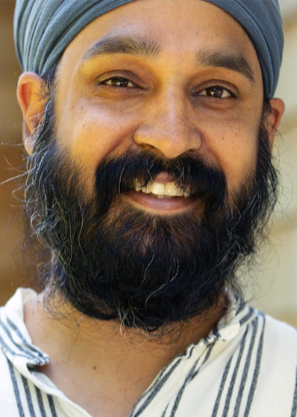James Buckser
Staff writer
Simran Jeet Singh is working for equality.

Singh will speak on his own journey today at 2 p.m. in the Hall of Philosophy as part of Week Four of the Interfaith Lecture Series theme “Religious Faith and Everything Else We Believe In.”
Singh strives for equal treatment of all people, regardless of race, class or faith, serving in several roles, including his work as an Atlantic Fellow for Racial Equity with Columbia University and the Nelson Mandela Foundation, a Soros Equality Fellow with the Open Society Foundations, and executive director of the Religion and Society Program at the Aspen Institute.
The institute works to ensure that all people “have the opportunity to thrive,” Singh said, no matter “what they believe, if they don’t believe, how they look, where they come from.”
“We do that in many different ways,” Singh said, “primarily by working with leaders in different areas who can help ignite change and resolve some of the biggest social issues that we face in our time today, around racial justice, around climate change, and ultimately, about learning the dignity in the people that we meet every day.”
Singh holds graduate degrees from Harvard and Columbia, and is a visiting lecturer at Union Seminary. He writes articles for outlets including Time magazine, CNN and Religious News Service. He is the author of a children’s book, Fauna Singh Keeps Going: The True Story of the Oldest Person To Ever Run a Marathon, and a nonfiction book, The Light We Give: How Sikh Wisdom Can Transform Your Life.
In a recent article for Time, Singh wrote about the Sikh idea of seva. According to an article from the BBC, seva or “sewa” involves “acting selflessly and helping others in a variety of ways, without any reward or personal gain,” which is important to the Sikh faith.
“It helps us have a sense of perspective about where we sit in the world, how we relate to other people,” Singh said. “It … helps us to practice humility, and to see that the world is bigger than our individual lives, and that we can find meaning and happiness for serving the people around us.”
Singh said while some aspects of American religious inclusion are “getting better,” others are “getting worse.” What is remaining consistent is that Americans tend to be “unsure” about how to discuss religion and “uncomfortable” with conversations about it.
“I think that is unfortunate,” Singh said. “It leads us to not know important reasons for what makes us tick.”
While we’re “comfortable” discussing issues like “race and gender and sexual orientation,” Singh said religion often gets left behind.
“When we’re thinking about creating a culture where people can be their whole selves, but we don’t account for religious identity and religious experience,” Singh said, “we miss out on an important part of people’s lives.”
While often under-discussed, Singh said it is “increasingly clear” that religion plays an “important role in American politics.”
“You can look at any major hot-button issue like abortion or immigration, you can look at phenomena and movements like white Christian nationalism,” Singh said. “Religion is playing a really important role in our society, and we’ve gotten to the point now that we can no longer ignore it.”
While this is happening here, this is also true outside of “the American context,” Singh said, with the rise of right-wing nationalism often using religion as a driving factor.
“If we want to address these issues head on, we have to start taking religion more seriously and understand better what’s happening here so that we can deal with it,” Singh said.
Singh said part of the way to do that is to start talking about difficult subjects.
“We really make progress when we actually talk about the issue, even when our conversations are uncomfortable and even when we don’t have all the right answers,” he said. “I think with regard to religion, step one is really developing a basic comfort around curiosity, being able to ask the right questions and not expecting one another to always have the right answers.”
Singh also said a second step is “cultural and religious literacy” that could help, not “for the sake of having all the information,” but to “open our minds and our hearts” to people who are different from us.
Singh will offer his own unique experiences today, hoping to “share a story that people haven’t heard before,” the story of “a Sikh growing up in America” and share insights he’s learned from his tradition that have helped him stay “optimistic and hopeful amidst darkness.”
“I’m hopeful that the message will be both grounded in the real challenges of our lives,” Singh said, “but also the possibilities of the optimism that comes from it.”




